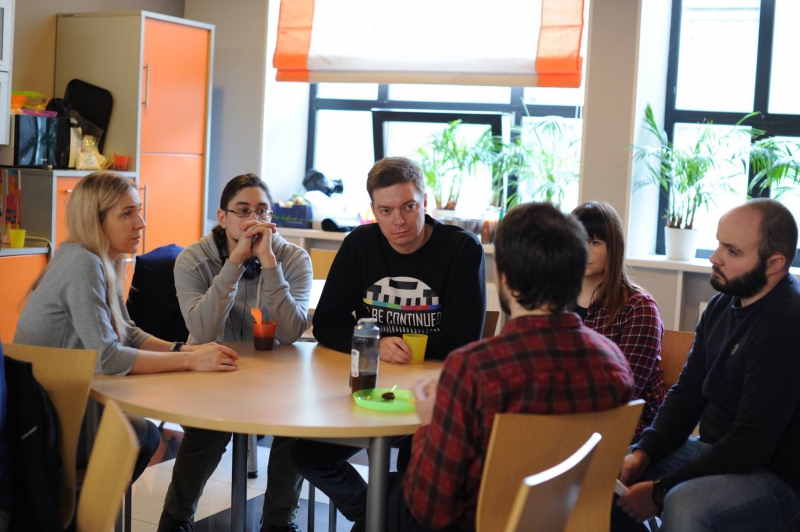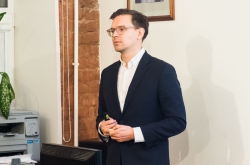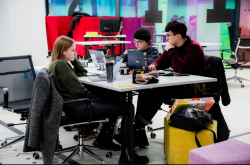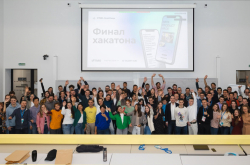4SPB: Machine Learning for Civil Projects took place in the lead-up to March 2, 2019, the International Open Data Day. It was organized by the Greenhouse of Social Technologies, a project that conducts hackathons on open data since 2012 and supports projects that help make St. Petersburg better. ITMO University was the hackathon’s official partner.
According to the organizers, the hackathon is a great opportunity to work with IT projects and solve some of the city's social problems. The event's name speaks for itself; 4SPB refers to the four project categories: safe city, inclusive city, self-governed city, and clean city.
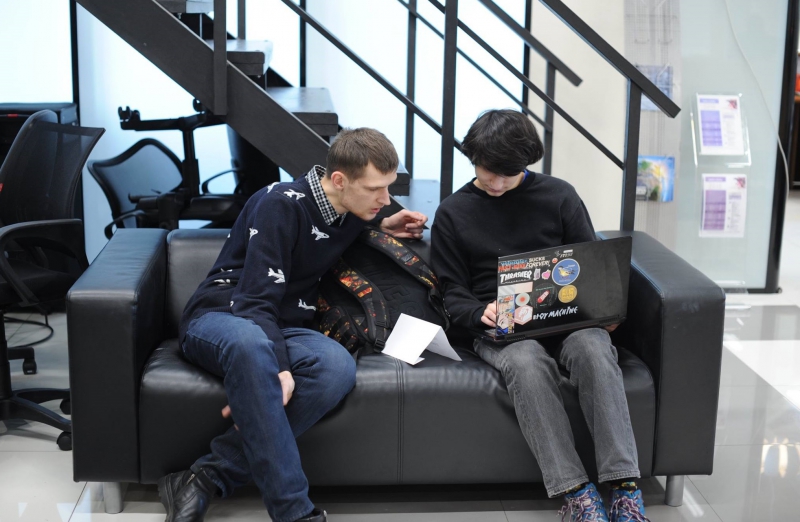
The hackathon's participants were to solve one of the nine tasks related to the application of machine learning methods. Their main goal was to develop and launch a useful web service or an application. A distinctive feature of 4SPB is that all topics are proposed by non-profit organizations, civil activists or on private initiative. What's more, the hackathon's projects aimed to solve social problems present within the city and the Leningrad Oblast. According to Alexey Sidorenko, the head of the Greenhouse of Social Technologies, the hackathon's participants worked with real problems that are considered the most relevant.
"It's very important that among the participants were not only programmers, but also public activists, the people who are well-versed in the projects’ themes. Prior to the event, our team browsed through the different requests we got and studied the current issues of non-profit organizations, and then analyzed how exactly could machine methods be applied to solve them. Finally, we chose particular experts and mentors for the teams working on each of the problems," comments Alexey Sidorenko.
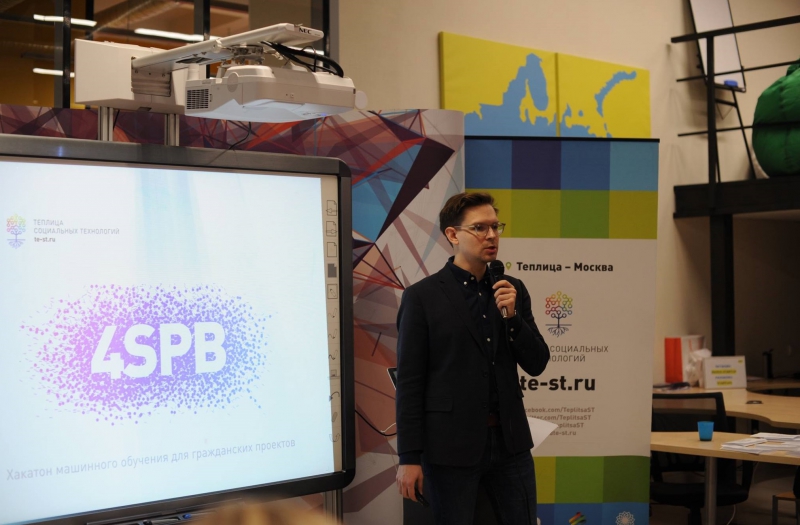
Participants could join the teams of nonprofit organizations or work individually on the proposed tasks or ideas of their own. In the end, nine projects made it to the finals, and each presented a solution for one relevant social issue.
Foodsharing, anti-flyposting, and other initiatives that benefit from machine learning
Members of the team Food bot worked on a task offered by the Foodsharing SPb community. Foodsharing is a social and environemtnal initiative that aims to reduce food waste. Today, the group's members actively promote foodsharing via a VK page where users give away unspoiled food they don't need.
Team Food bot developed and presented a bot that can help make this process simpler. It can notify those who are looking for free food about new ads; what's more, it can come up with location-specific rankings and search for nearby offers. A user can specify a location where they prefer to pick up the food, as well as the products they are looking for. The bot browses through ads and lists the ones that comply with a user's query.
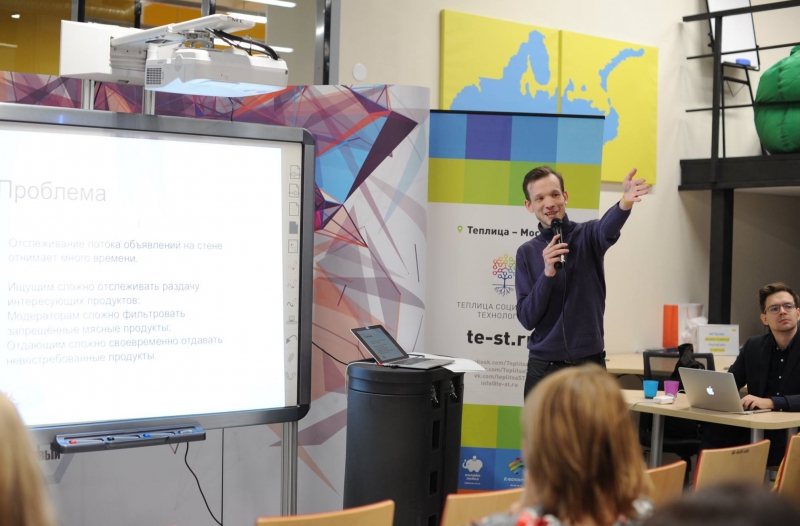
In the future, the team wants to come up with a recommendation function: the bot would offer users options based on their most common searches.
Another team worked on a case dedicated to the struggle against flyposting in St. Petersburg. Any St. Petersburg citizen is familiar with the sight of facades and windows draped with all kinds of advertising, some of which is illegal. In theory, this issue should be taken care of by auditors licensed to remove illegal advertising. What's more, the citizens themselves can file complaints on the matter, for example via the Our St. Petersburg portal. Still, keeping watch over the whole city can be really hard. In order to make it simpler, the project's authors proposed to automate the process of identifying illegal advertising by using panoramic maps and computer vision.
The team decided to use photographs from Google Maps to classify and identify images. As the result, they've succeeded in breaking them down into several categories. In future, the team also plans to learn to identify banners by using surveillance cameras and images posted on Our St. Petersburg, as well as to improve the process of telling apart legal and illegal ads.
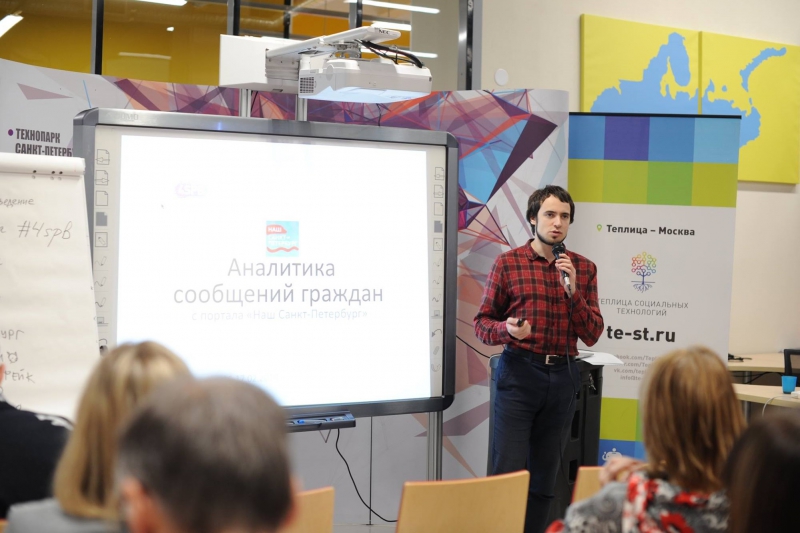
Another project that had to do with data analysis published on the Our St. Petersburg webportal was presented by Steve Kuddins, the coordinator of the Beautiful St. Petersburg initiative and an expert at ITMO’s Institute of Design and Urban Studies. The project's authors wanted to analyze the opportunities for opportunities to make civil activism more accessible to citizens.
They analyzed a year's worth of information and came up with several unexpected conclusions. For example, they learned that out of 35,000 users who have submitted requests during that period, five users generated 10% of the requests. On the whole, only about 40 people are truly active: they submit requests and information on problems in different parts of the city. Everyone else is concerned only with the issues directly related to their area of residence. For this reason, Steve Kuddins believes that it's necessary to propose some solutions that will help focus the citizens’ minds on solving urban problems throughout the whole city.
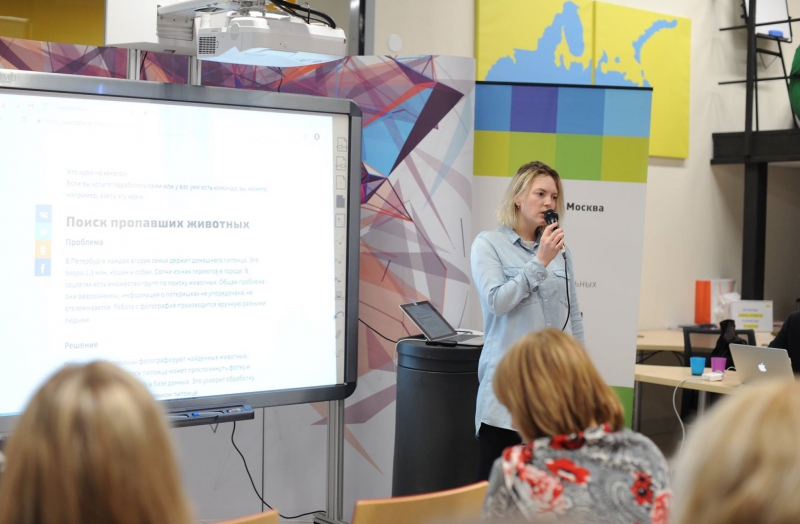
Other teams presented solutions for automating the search for lost pets, simplifying the calculation of voter participation rates during elections, and optimizing the route of the Blue Bus, a mobile medical facility for those suffering from drug addiction.
The winning project Woman. Prison. Society was authored by Leonid Agafonov. As Natalya Donskova, one of the team's members, explains, they've changed their initial concept and focused on the violation of human rights of prisoners who become victims of violence and are forced to work in the sex industry. The project will serve as the foudnationl of a major investigation which will focus on identifying and analyzing particular problems and developing mechanisms for helping victims of violence.
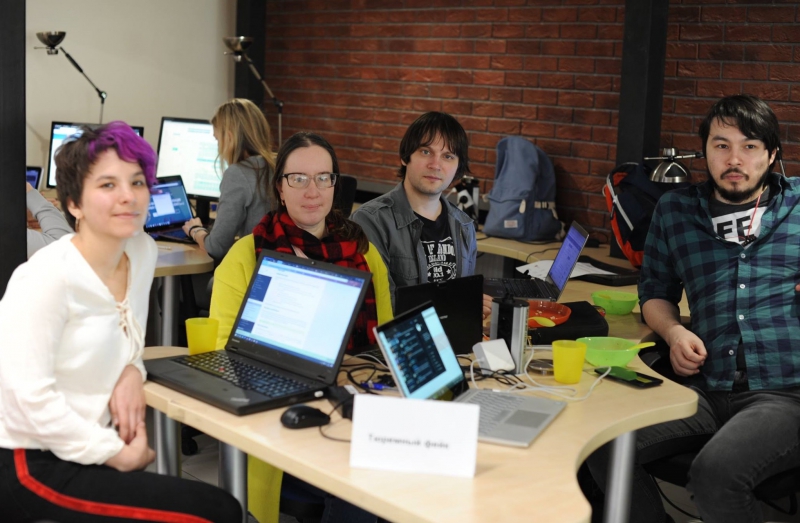
The team used machine learning to develop an instrument that helps search for web advertising associated with prisons that mentions sexual services and the distribution of illegal videos. The project's participants plan to analyze 100,000 ads and learn whether such business is a systemic phenomenon.
"At first, we planned to propose a different topic and leave this one for the future. But when we started to work on the project's social aspect, we decided to go on with our original idea,” comments Natalia Donskova. “Naturally, we are planning to continue our work. Winning the hackathon means that we'll get help with completing the project, and I think that'll take several months at least. I guess we'll have to try several more runs using data science, analyze the provisional results and communicate what we’ve learned to the public. After all, this topic is stigmatized, and not everyone is ready to listen."
The hackathon's winners received 60,000 rubles for completing their project. What's more, the event's organizers will help the team shape and present their solution. Finally, the Greenhouse of Social Technologies will also partake in launching the project and will be responsible for monitoring its effectiveness.
